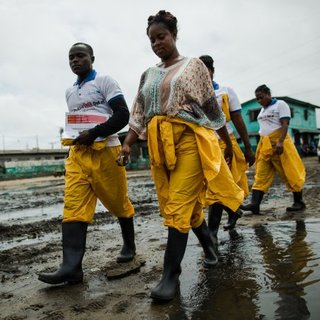Supporting locally led humanitarian action has become a priority for many in the sector. For some, this shift is driven by an ethical imperative. For others, it is a practical reality.
Yet the pace of change on locally led action and localisation has fallen far short of the rhetoric of international actors and the hopes of national and local organisations.
Here we navigate the challenges of understanding what success looks like for locally led humanitarian action.
Localisation refers to an ambitious, broad-ranging policy agenda to increase the power and funding of local actors in humanitarian response.
Locally led action is used to denote approaches where programmes are conceived, shaped and delivered closer to the communities facing crisis; designed in accordance with local norms and needs; and which may occur with or without support from the formal international system.
“ALNAP has been a great partner in our push for the localisation agenda."
Manu Gupta, Co-Founder at the Sustainable Environment & Ecological Development Society (SEEDS)

